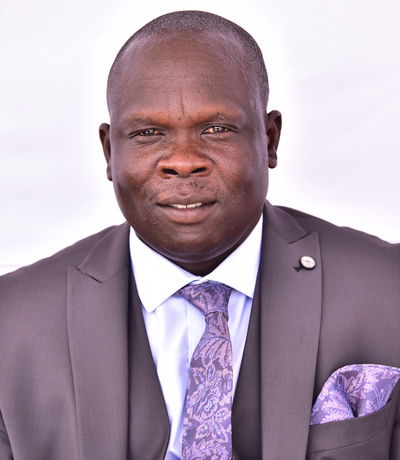West Nile Leaders Rally for Funding as Anti-Tick Vaccine Stalls
Efforts to operationalize Uganda’s first anti-tick vaccine factory have been put on hold due to a last-minute omission of Shs60 billion in funding from the 2024/2025 national budget corrigenda.
The revelation was made by the Minister of Agriculture, Animal Industry, and Fisheries, Hon. Frank Tumwebaze, during a parliamentary meeting with the Sectoral Committee on Agriculture, Animal Industry, and Fisheries on Friday, January 17, 2025.
The National Agricultural Research Organisation (NARO), tasked with spearheading the commercial production of the vaccine, had aimed to launch operations in January 2025.
However, the funding gap has stalled the project, jeopardizing livestock health and productivity in tick-prone areas like West Nile.
“The omission has delayed progress and hindered our ability to protect livestock against tick-borne diseases effectively,”
Tumwebaze noted.West Nile, where livestock farming is a key economic activity, faces significant challenges from tick-borne diseases. The delay in vaccine production is expected to worsen the situation for farmers who are already struggling to protect their cattle.
The agriculture ministry has identified a funding deficit of Shs600 billion to carry out critical interventions in research, genetic development, seed production, and certification. Additionally, Shs240 billion is required to implement mechanization and irrigation projects, including Shs65 billion for valley dam construction.
During the committee session, Hon. John Lematia (NRM, Ayivu Division West) voiced his concerns about the lack of valley dams and irrigation facilities in West Nile.
“This committee has repeatedly recommended addressing the issue of valley dams. However, the funds allocated for their construction are either inadequate or fail to reflect on the ground,” Hon. Lematia emphasized.

In Pic - Hon. John Lematia (NRM, Ayivu Division West)
Hon. John Lematia pointed out the dire situation faced by West Nile farmers, who rely heavily on access to water for crop production and livestock. With ongoing climate challenges, uncompleted irrigation projects exacerbate food insecurity in the region. He urged the government to prioritize these developments, stating,
“For regions like West Nile, where agriculture is the backbone of livelihoods, we cannot afford further delays in addressing water access challenges.”
The minister appealed to MPs to support the establishment of a Food and Agricultural Authority, which requires Shs5 billion in funding. The authority would address the influx of fake agricultural inputs and enhance food safety standards.
He also highlighted the African Union's call for increased public sector investment in agriculture, referencing the 2003 Maputo Declaration and the 2014 Malabo Declaration.
The AU urges member states to allocate at least 10% of their national budgets to agriculture, a target Uganda has yet to meet.According to Maj. Gen. (Rtd) David Kasura-Kyomukama, the ministry’s permanent secretary, Shs1.689 trillion is required to fund all entities in the agricultural sector for the Financial Year 2025/2026. Of this, Shs850.7 billion is earmarked for direct ministry activities.
West Nile MPs, including Hon. Lematia, are demanding that the government take immediate action to ensure the agricultural sector receives the funding it urgently needs.
With the region being a major contributor to livestock farming and food production, unresolved issues around valley dams and irrigation are seen as a betrayal of the community’s hard work and resilience.
“We need to protect the livelihoods of our people. The government must allocate resources effectively to complete these critical projects,” Lematia said, underscoring the pressing need for investment in West Nile’s agricultural infrastructure.
The delayed anti-tick vaccine factory and insufficient funding for agricultural priorities highlight systemic challenges in Uganda's budget allocation process.
For West Nile farmers, the stakes are particularly high as they navigate growing challenges in livestock and crop production.
The community is now looking to its leaders to advocate for equitable funding and the timely completion of essential projects.
For more updates on agriculture and development in West Nile, stay tuned to Daily West Nile News.
Whats your view on this delay as West Nile farmers continues to suffer from tick-borne diseases?
Join the Daily West Nile WhatsApp group now to never miss an update from us.Download Host Media Now from the Play Store to watch HostTV, listen to Host Radio Live, and stay informed—all in one convenient app!
Source: Paliament